The only choice for reconstruction and recurrence prevention.
reconstruction Rhinoplasty in Korea
KNOW-HOW 01
Lengthening nose tips and fixing contracture
KNOW-HOW 02
Creating robust nasal supports with autologous cartilage.
KNOW-HOW 03
Preventing recurrence of contracture.
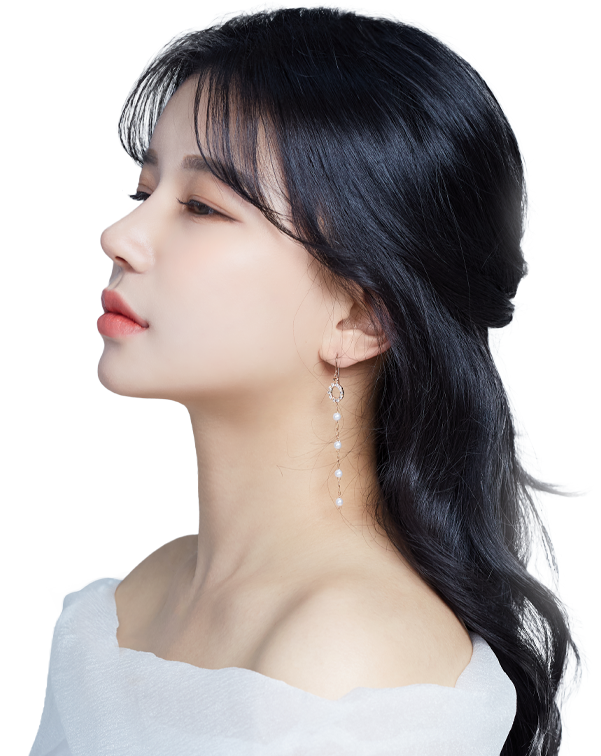
surgery time
About 4 hours
anesthesia
general anesthesia
Hospitalization
Discharged on the same day
Stitch removal
7 days
recovery period
About 1 week
made young CLINIC IN KOREA
What is Nose Contracture?
‘Contracture’ refers to a phenomenon in which the overall length of the nose becomes shorter and the tip of the nose lifts and becomes hard as the skin contracts due to inflammation, implants, or changes in the skin after rhinoplasty.
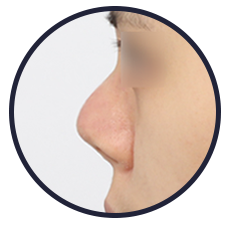
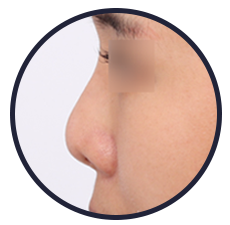
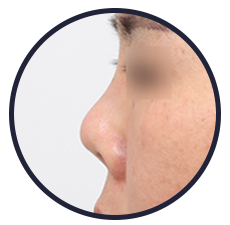
Because the causes of contractures are diverse, surgical methods are equally as varied. In particular, contracture must be treated after thorough analysis of the cause to prevent recurrence.
“It is very important to have the surgery performed by a qualified medical staff with extensive experience in rhinoplasty surgery.“
MADE YOUNG CLINIC IN KOREA
Key points of Made Young’s reconstruction rhinoplasty
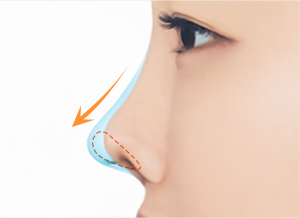
Sufficient Length Extension
After resolving the cause of the contracture and the problem tissue, it is very important to sufficiently lengthen the detached soft tissue and extend the shortened nasal tip using strong autologous tissue.
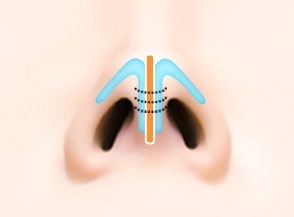
Sturdy Support Structure
Since the support structure inside the nose is deformed or weakened, a strong support structure must be created using autologous costal cartilage that can support the hard skin.
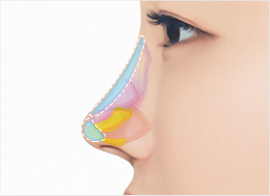
Prevention of Recurrence of Nose Contracture
Because contracture occurs due to inflammation caused by synthetic materials, only autologous tissue can be used to prevent inflammation and recurrence. At Made Young, we perform customized reoperations depending on the cause using only autologous tissue.
MADE YOUNG CLINIC IN KOREA
Made Young’s Reconstruction Rhinoplasty
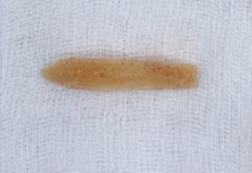
A ‘film’ or ‘capsule’ refers to the thin membrane created by the body when an implant is inserted. After nose surgery, the skin thickens due to inflammation and internal tissue damage, which can cause contracture.
In the case of nose contracture, the key is to cleanly remove this ‘film’ or ‘capsule’ after relieving the contracture in the nose. Additionally, surgery should be performed using autologous tissue rather than using foreign substances that can cause recurrence.
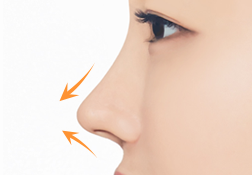
Reconstructive rhinoplasty is complex, requiring medical staff with in-depth knowledge of nasal anatomy and soft tissues, plus significant surgical experience.
The key lies in meticulously releasing bonded cartilage and contracted soft tissue, removing inflammation-damaged tissue, and then extending length with autologous tissue.
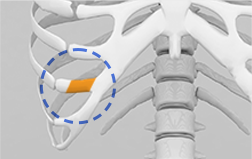
To improve the tip of the nose, which is shortened and lifted due to contracture, we use only the strongest autologous cartilage.
It is appropriate to use autologous costal cartilage to create a strong nasal pillar and support structure. Additionally, if the nasal skin is too thin due to damage and is insufficient, a composite skin graft is also performed.
Why Made Young For Reconstruction Rhinoplasty?
POINT 01
A dedicated rhinoplasty medical staff provides 1:1 care from consultation to surgery and progress checks.
POINT 02
Both aesthetic and functional aspects can be solved at the same time.
POINT 03
Plan an accurate surgical method through precise analysis using 3D-CT.
POINT 04
Excellent aesthetic sense considering overall facial proportions and balance.
POINT 05
1:1 customized plastic surgery using only the most appropriate surgical method and materials.
Medical staff dedicated to rhinoplasty
Plastic surgery specialist Dr. Lee Byeong-hoe
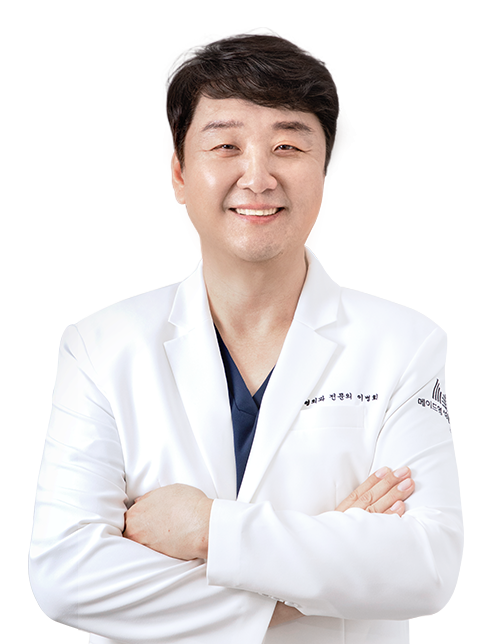
made young CLINIC IN KOREA
When is the time for Reconstruction Rhinoplasty?
Typically, surgery for nasal contracture and reconstruction is optimal six months to a year after previous damage stabilizes. Depending on nasal condition, some cases may be corrected in one procedure, while others may need multiple sessions.
Made Young Plastic Surgery performs 1:1 customized reconstruction rhinoplasty by carefully analyzing the current nose condition and using only surgical methods suitable for each individual, such as implant removal and skin grafting.
“We do our best to treat each and every patient with strict standards so that this can be their first and last revision rhinoplasty.”
Anesthesiologist and Pain Medicine Specialists in Residence: Patient Safety is our Top Priority
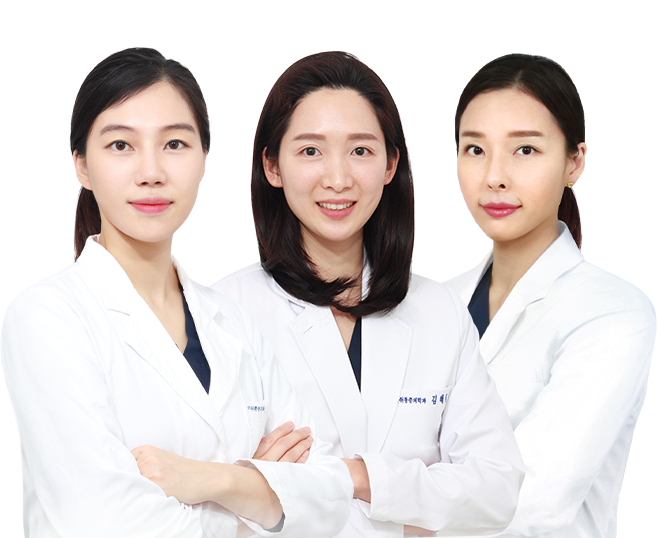
monitoring
Systematic 1:1 monitoring of the entire surgical process.
safety
Establishment of the latest medical equipment and emergency systems.
Expert
Three resident anesthesiologists and pain medicine specialists.
At Made Young Plastic Surgery, an anesthesiology specialist evaluates patients prior to surgery and monitors them in real time, one-on-one, until completed, ensuring a safer surgical experience.
Considering beauty and safety
3D-CT precise analysis system
Made Young Plastic Surgery uses an advanced 3D-CT precision analysis system to establish a more accurate surgical plan. It three-dimensionally analyzes the size and shape of the nasal bone, the structure and size of the nasal septum, as well any asymmetries which cannot be confirmed with the naked eye.
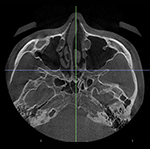
Degree of Angle and Nasal Septum Deviation
By checking various symptoms, such as the condition of the nasal bone or cartilage and septum deviation, we can improve not only the cosmetic, but also the functional aspect of the surgery plan.
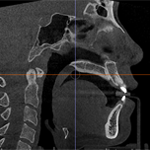
Analyzes Size and Shape of the Nasal Bones
By accurately analyzing the size and shape of the nasal bone and the condition of the septal cartilage before surgery, a more detailed surgical plan can be established.

Frequently Asked Questions
What makes reconstruction rhinoplasty in Korea effective?
Reconstruction rhinoplasty in Korea is renowned for addressing and preventing contracture issues using advanced techniques with autologous cartilage. Made Young specializes in creating robust nasal supports and customized solutions for each patient.
Why choose Made Young for reconstruction rhinoplasty?
Made Young offers personalized reconstruction rhinoplasty with a focus on aesthetic and functional outcomes, using precise 3D-CT analysis and experienced surgical expertise. The clinic is dedicated to ensuring patient safety and optimal results through thorough and innovative techniques.
What is the recovery process for reconstruction rhinoplasty at Made Young?
Recovery from reconstruction rhinoplasty at Made Young typically involves a one-week period with stitch removal after seven days. The use of autologous tissues and skilled techniques minimizes recovery times while enhancing long-term stability and appearance.
